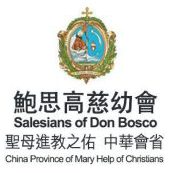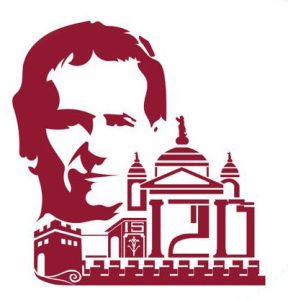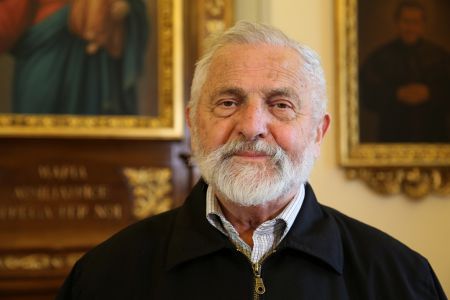【慈幼通訊社 ─ 2019 年 10月 09 日梵蒂岡訊】 ─ 慈幼會士博塔索神父,為亞馬遜主教會議其中一位在知識、牧民及福傳方面具重要性的人物。他是人類學專家,於1963年晉鐸,在亞馬遜地區生活了逾半個世紀。在一封向參與主教會議的神長送上的公開信中,他發表了兩項建議:「亞馬遜教會要覺醒並謙遜地作出道歉」,以及「鄭重地邀請各個基督徒組別,停止分裂亞馬遜各民族。」
向參與主教會議的神長送上的公開信
天主教會自十六世紀便在亞馬遜地區服務。教會克服了重大的困難,衝破隔膜,傳播到這龐大的地區。數以百計的人,畢生致力向當地的原住民傳播福音。在十九世紀中葉開始,一個婦女團體亦投身這項服務,令人欽佩。無疑,是一份正直的信仰,驅使他們的福傳使命,而他們所作的犧牲,亦無可否認,然而我們必須認清,在他們種種活動的中心,也有一些問題。顯然,以現今的觀點判斷過往的工作是不公允的,然而我們可以說,福音無法喚起一個更具先知性的遠見。福傳活動是出於慷慨,卻帶有父權的表現。他們努力不斷教導,卻欠缺耐心聆聽。與其說是對話,不如說是說教。原住民時常被視為年幼的、少不更事的。在多個國家裏,那些代表教會的監牧及代牧,既沒有準備人手,也沒有完全願意,來長久地居住在這些偏遠而極度不便的地區,卻把亞馬遜各民族融入他們本身的國家文化中。這些使命不錯是充滿熱忱,卻沒有尊重當地人民的文化價值。為確定這一點,可以看看直至數十年前福傳雜誌的用字。由於一些原住民擁有一定的知識水平,能閱讀這些刊物,可以看到在他們心中留下的印象,令教會多尷尬。
對此,亞馬遜教會認清了這事實並作出道歉,是合適的。
然而,有另一種狀況,直到現今依然存在。
亞馬遜原住民人數高達二百萬,然而這些數目眾多的族群,在語言、歷史及文化背景上,各有差異。有些族群只有數百或數千人。他們受周遭社會包圍,領土受侵佔,受多個國家的人民威脅,在講求劃一的全球化中迷失方向。他們既可憐而又十分脆弱,在各基督宗派(天主教及不同基督教宗派),各自傳播他們自己國家間固有的分歧情況下,更形處於弱勢。耶穌基督願意成為合一和共融的連結,卻被人用來宣講分歧。
這次主教會議,應提供一個機會,處理這項對所有基督宗派的鄭重邀請,停止分裂亞馬遜各民族。
讓我們傳揚耶穌作為唯一的救主;讓我們傳播祂慈愛、團結及寬恕的訊息,即使一些神學上的分野需要我們尊重,卻不要成為我們服務的重心。讓我們集中力量,與這些原住民共同克服他們所面對的難題,他們生存與否,全在於此:保衛環境、守護領土、提升並賞識他們的文化。這樣,他們便會看到耶穌基督的跟隨者,是站在他們一方,更看到自己是教會的一部份,這教會只為他們的好處著想。
Open letter to Synod Fathers by Fr Juan Bottasso
(ANS – Vatican – Vatican City, 09 October r 2019) – One of the figures of intellectual, pastoral and missionary importance in the Synod of the Bishop for the Amazon is Fr Juan Bottasso, SDB. He is an anthropologist by profession, ordained a priest in 1963 and he has been in the Amazon for over half a century. In an open letter sent to the Synod Fathers gathered in the Vatican he presents two proposals: that “the Amazonian Church becomes aware and humbly apologizes” and makes “a solemn invitation to all Christian groups to stop dividing the Amazon peoples.”
Open letter to the Synod Fathers
The Catholic Church has been present in the Amazon since the 16th century. Overcoming enormous difficulties to win over the barriers that impeded penetration into that immense region, hundreds and hundreds of men consecrated their entire lives to evangelize the human groups that inhabited and inhabit it. From the second half of the nineteenth century, an impressive group of women also consecrated themselves in the same mission. It is absolutely impossible to doubt the good faith that motivated them, nor the immense value of their sacrifice, but we must acknowledge that there was also something questionable at the center of their activities. Obviously it would be unfair to want to judge the past with the criteria of the present, but it can also be said that the Gospel has been unable to inspire a more prophetic vision. Missionary activity was generous but paternalistic. It tried hard to teach a lot, but did not have the patience to learn. More than dialogue there was indoctrination. The indigenous people were always considered as minors, underaged. The various States, not having personnel prepared and willing to live permanently in remote and enormously inconvenient areas, delegated the Church, through the Apostolic Vicariates and Prelatures, with the task of integrating the Amazon peoples to their own nationality. This commitment was taken up with enthusiasm, but not always respecting the cultural values of the recipients. To convince oneself of this, it is sufficient to take a look at the language used by missionary magazines until a few decades ago. Since many indigenous people have studied and can access these readings, it is a bit embarrassing to see the impression that it causes them.
Of all this, it would be convenient that the Amazon Church acknowledge and humbly apologize
But there is another theme that does not refer to the past, but is totally current.
The indigenous population of all of the Amazon reaches perhaps two million individuals, but it is a constellation of peoples with enormously different languages, histories and cultures. Some have only a few hundred or just thousands of members. They are besieged by the surrounding society, deprived of their territories, threatened by the multinationals, disoriented by a globalization that levels everything uniformally. These poor groups, already enormously fragile in themselves, have been further weakened by Christians of all tendencies (Catholics, Protestants of various denominations), who exported between them the divisions born in their distant countries of origin. Jesus Christ, who wanted to be a bond of unity and communion, is preached in a way that divides.
This Synod should constitute an opportunity to address a solemn invitation to all Christian groups to stop dividing the Amazon peoples.
Let us preach Jesus as the only Savior; let us transmit His message that speaks of fraternity, solidarity, forgiveness and let us not place our theological differences at the center, although they are respectable. Let us combine all our strength to combat together the great battles that these brothers have to face, and their survival depends on this outcome: the defense of the environment, the conservation of their territory, the enhancement and appreciation of their culture. In this way they will notice not only that the followers of Jesus Christ are on their side, but that they themselves are part of a Church that wants nothing but their good.



